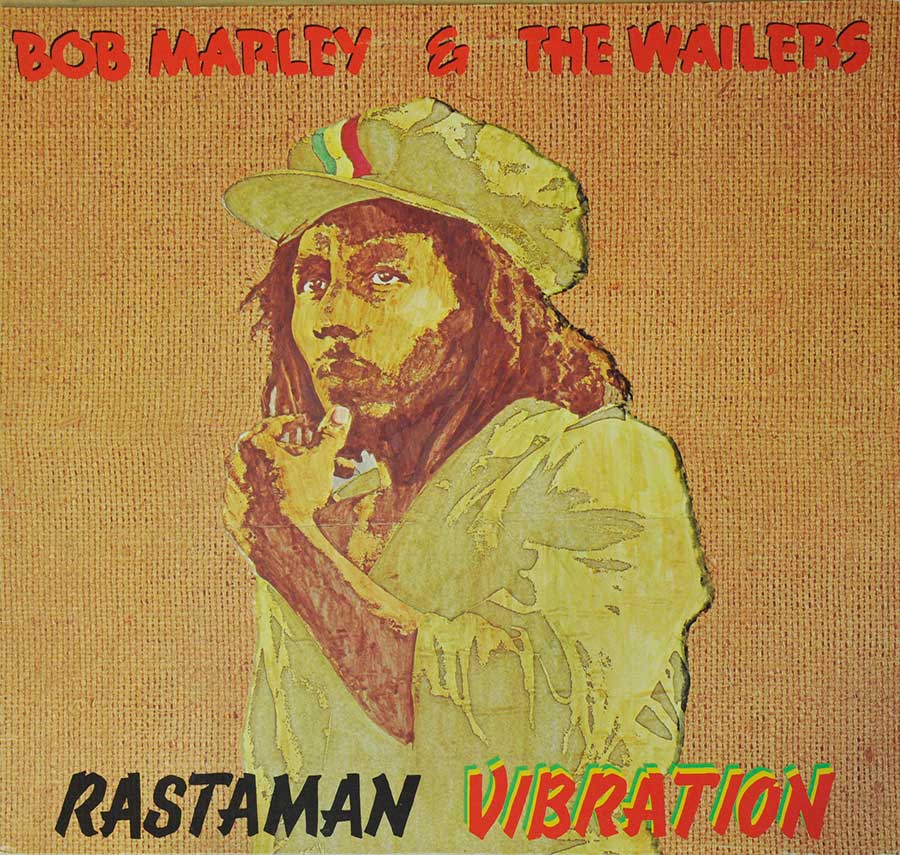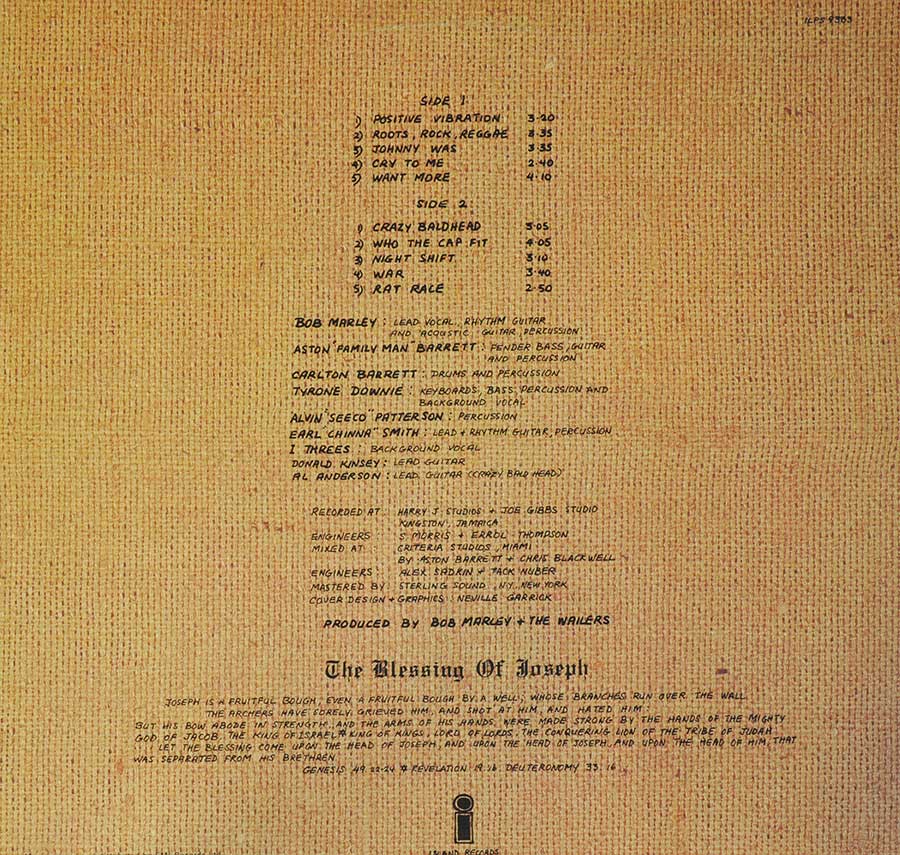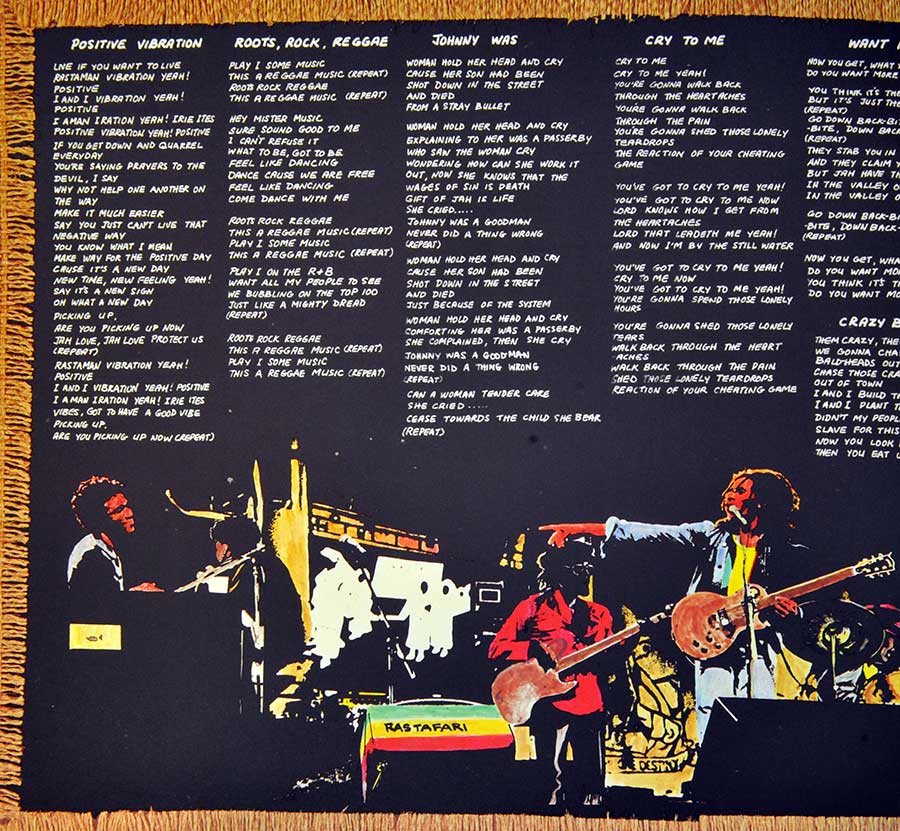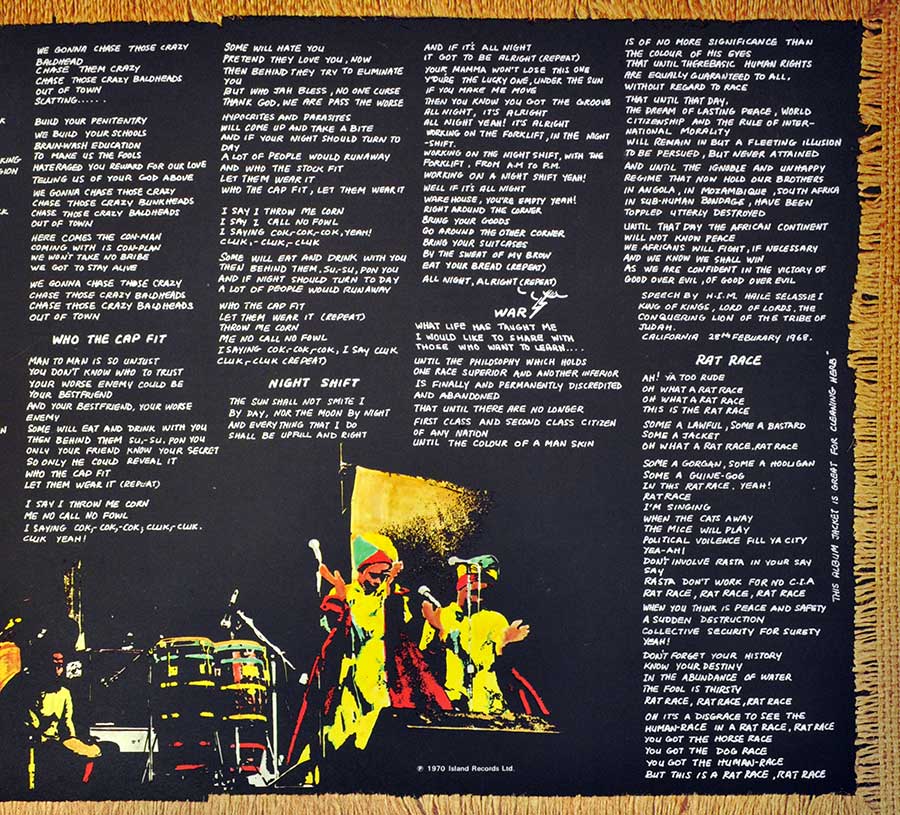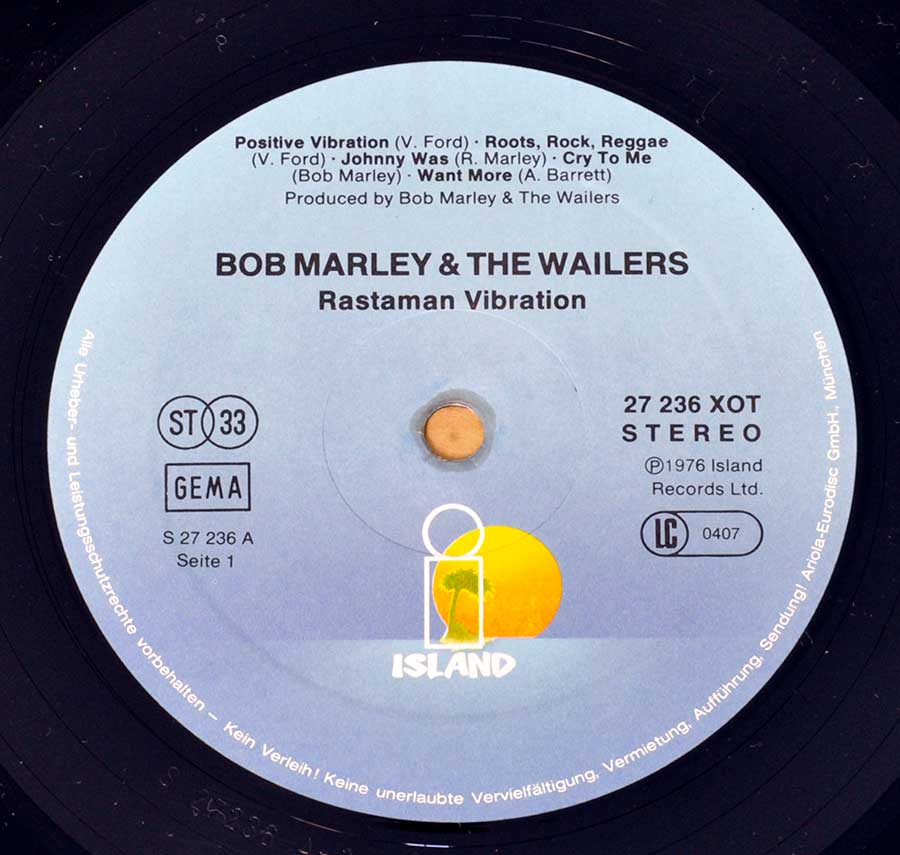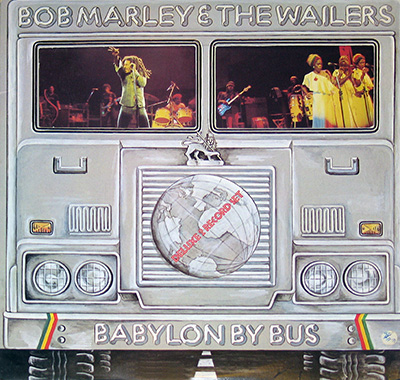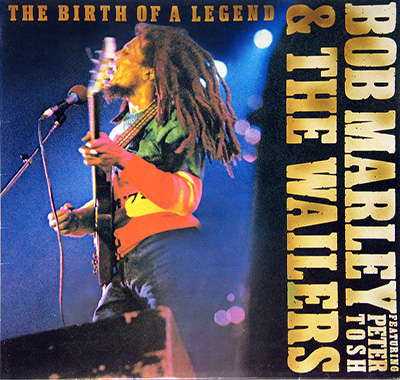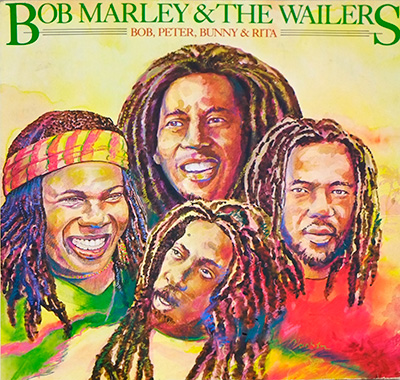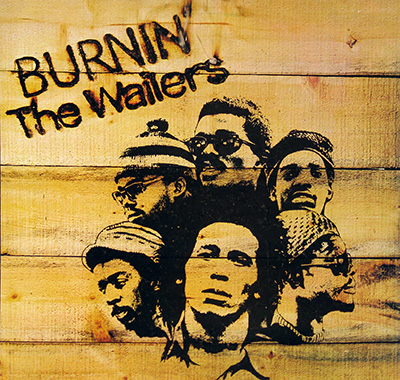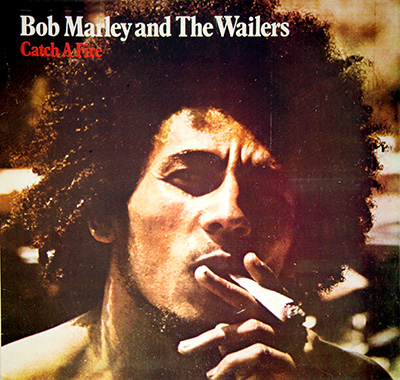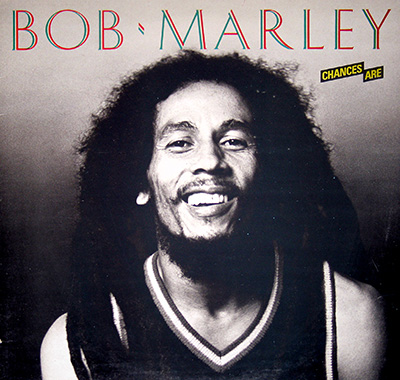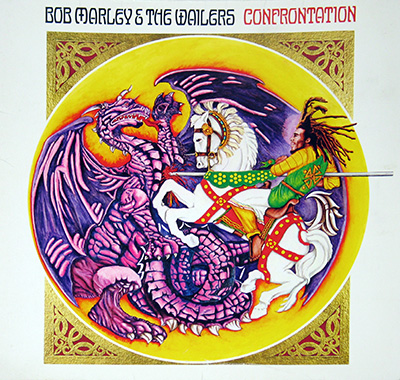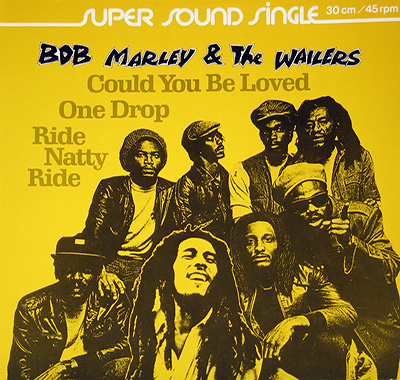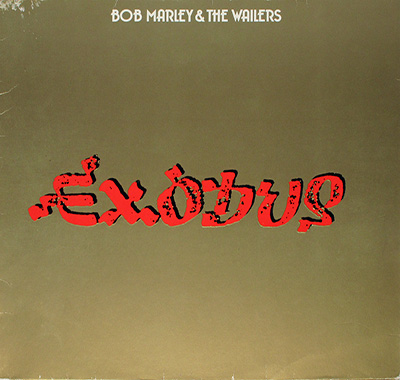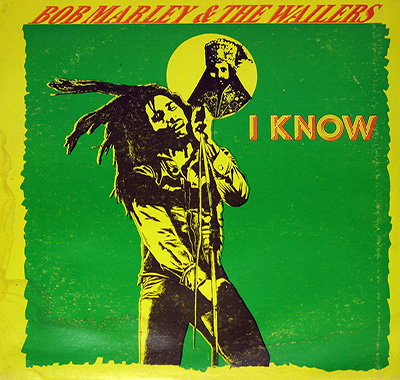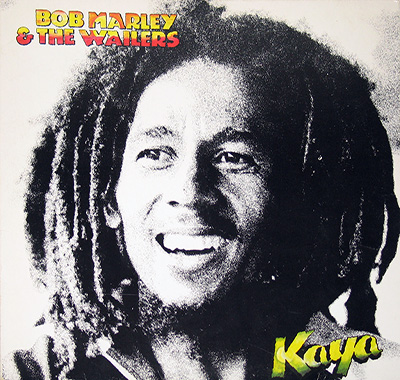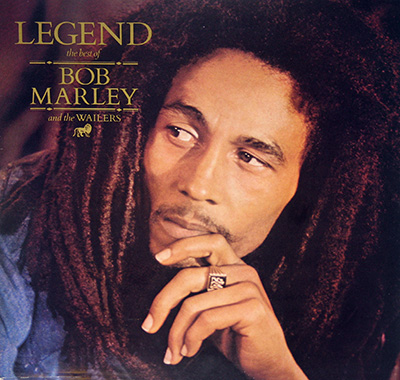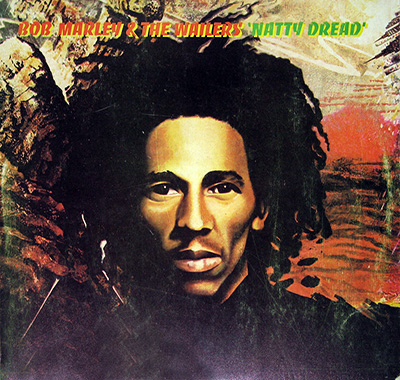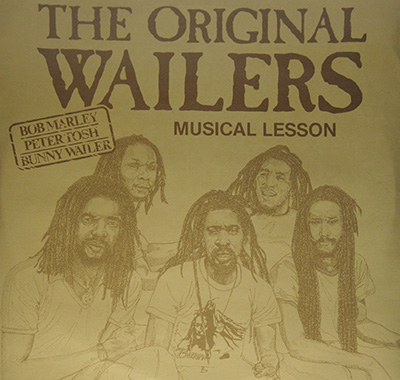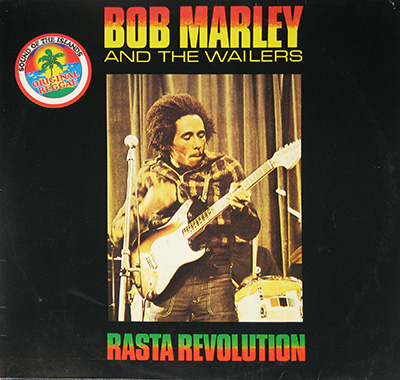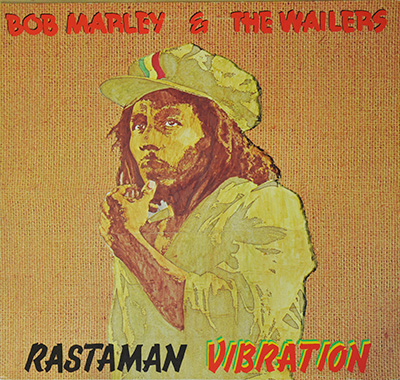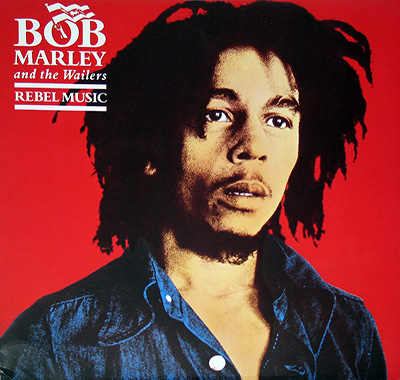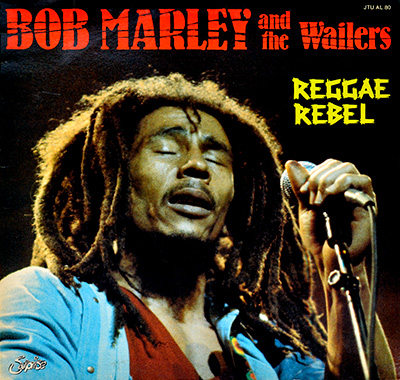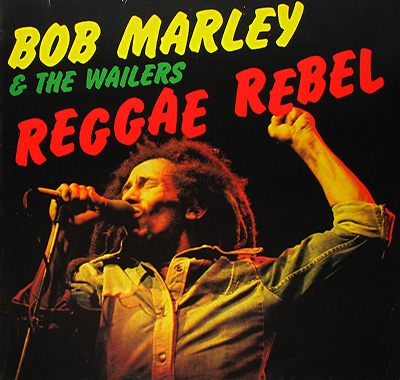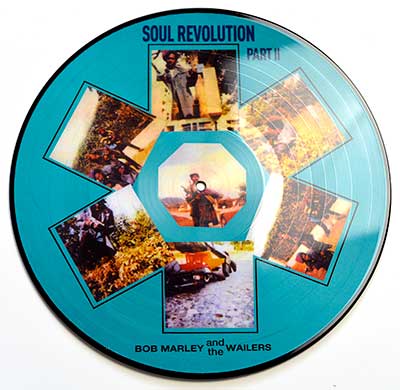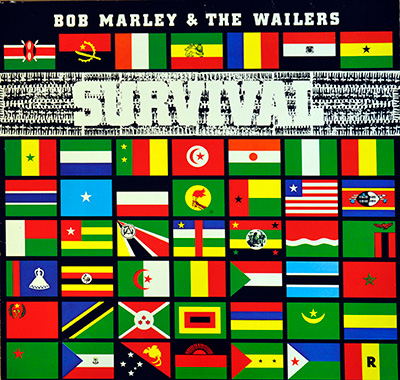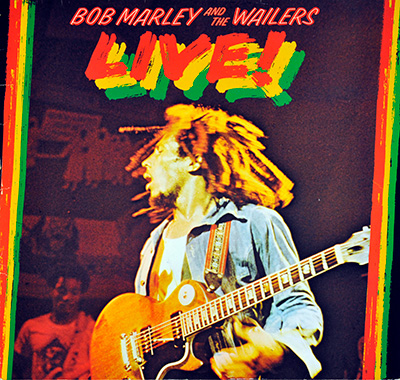"Rastaman Vibration" Album Description:
Historical Context
In the spring of 1976, the world was caught between turmoil and transformation—economic instability, post-Vietnam disillusion, and Cold War unease. In Jamaica, the political climate was heating up ahead of the general election, and violence in Kingston’s streets was escalating. Against this backdrop, Rastaman Vibration emerged as both soundtrack and statement. It arrived when reggae was crossing borders for the first time, finding audiences far beyond the Caribbean. The music carried not just rhythm, but rebellion—a defiant spirituality from a small island suddenly amplified on the world stage.
The Genre and Its Peers
Reggae in the mid-1970s was evolving from its ska and rocksteady roots into something heavier, slower, and more reflective. This was the “roots reggae” era, where the beat pulsed beneath messages of liberation and identity. Alongside Bob Marley & The Wailers, artists like Peter Tosh, Bunny Wailer, Burning Spear, and Culture were defining the sound of protest through syncopation. Outside Jamaica, musicians from London to Lagos were absorbing the rhythm and repurposing it for their own streets. Rastaman Vibration sits at this crossroads—musically rooted, globally resonant.
Musical Exploration
The album’s opening track, “Positive Vibration,” declares its intent with joyful defiance, while “Roots, Rock, Reggae” turns into a self-referential anthem celebrating the genre itself. Songs like “War” and “Rat Race” bring scripture and street politics together; “War” in particular transforms Haile Selassie’s 1963 UN speech into a rhythm of resistance. Marley’s writing sharpened here—his lyrics direct yet universal, his tone both preacher and rebel. Musically, the group expanded their palette, weaving subtle rock guitars and studio layering into the traditional roots framework, creating a sound that was both accessible and uncompromising.
Key Persons in Recording
Bob Marley was joined by his trusted collaborators: bassist Aston “Family Man” Barrett and drummer Carlton Barrett formed the heartbeat of the album, while Tyrone Downie’s keyboards and Al Anderson’s guitar brought warmth and clarity. The I-Threes—Rita Marley, Judy Mowatt, and Marcia Griffiths—provided harmonies that transformed Marley’s proclamations into collective anthems. The sessions were engineered in Kingston by Sylvan Morris and Errol Thompson, then mixed in Miami by Alex Sadkin and Tack Nuber, under the supervision of Marley, Barrett, and producer Chris Blackwell. The striking burlap-patterned cover and biblical typography came from artist Neville Garrick, a key visual architect of Marley’s message.
Band Historical Events and Line-Up Changes
By this point, the original Wailers trio had splintered—Peter Tosh and Bunny Wailer had moved on to solo work, leaving Marley to lead a reformed group under his name. This “second-generation” Wailers combined the Barrett rhythm section with new members who helped modernize the sound. The band’s growing professionalism and international touring demands brought discipline and direction, helping Marley evolve from local prophet to global ambassador.
Controversies Around the Release
Despite its success, the album stirred debate. Some fans feared Marley’s growing polish meant dilution, as the music moved closer to rock audiences. Yet the lyrical fire remained intact. Behind the scenes, songwriting credits became a quiet controversy: several tracks were officially credited to friends of Marley—like Vincent Ford—as a way of avoiding disputes with former publishers. Beyond the paperwork, though, Rastaman Vibration was a declaration of independence—spiritual, political, and musical.
In hindsight, this 1976 release captures the moment when reggae found its global footing without losing its roots. It was Marley’s bridge between Kingston’s turbulence and the world’s curiosity—a record that carried a nation’s struggle in its groove and the world’s conscience on its sleeve.
